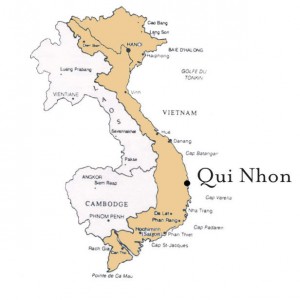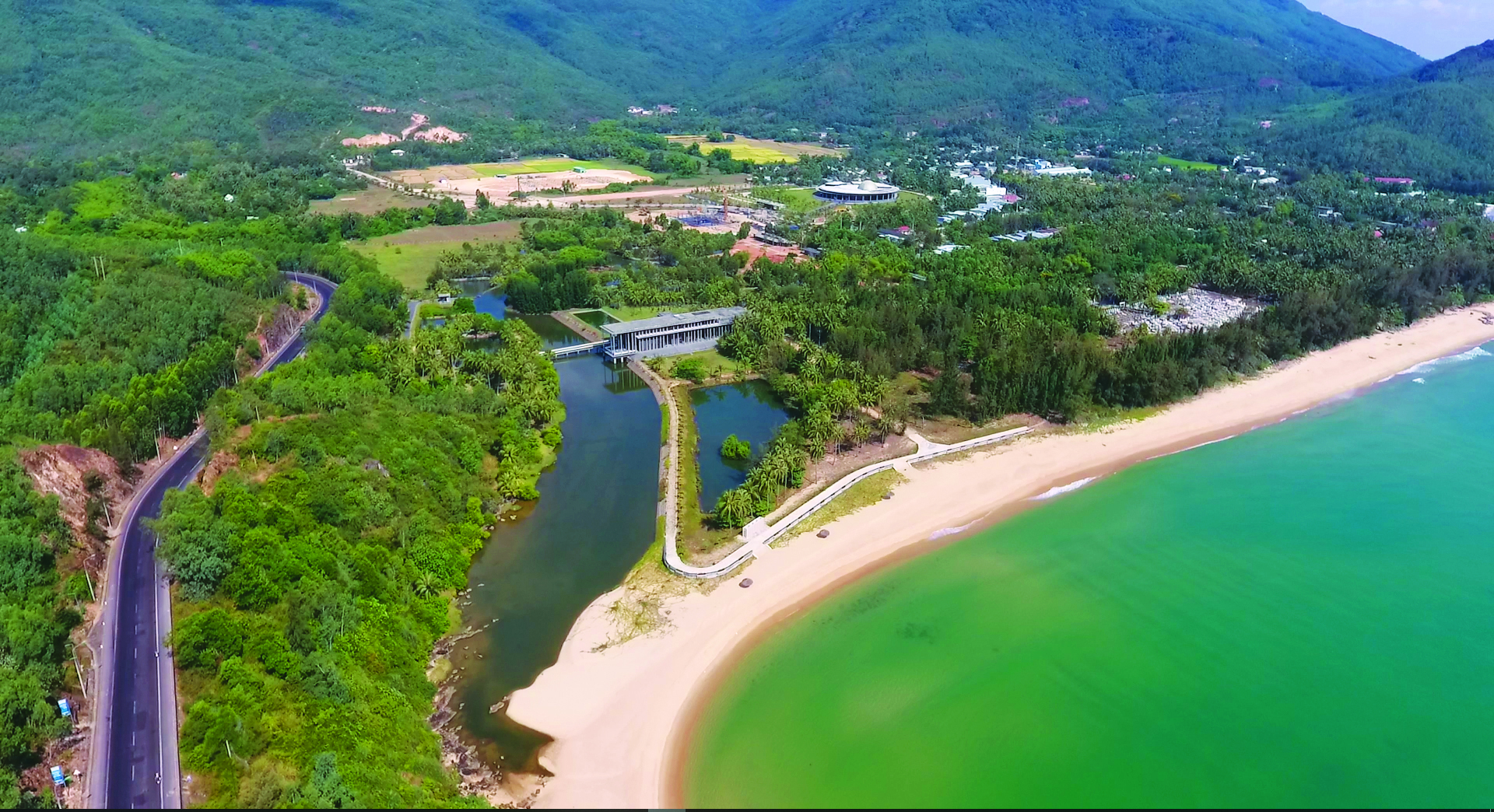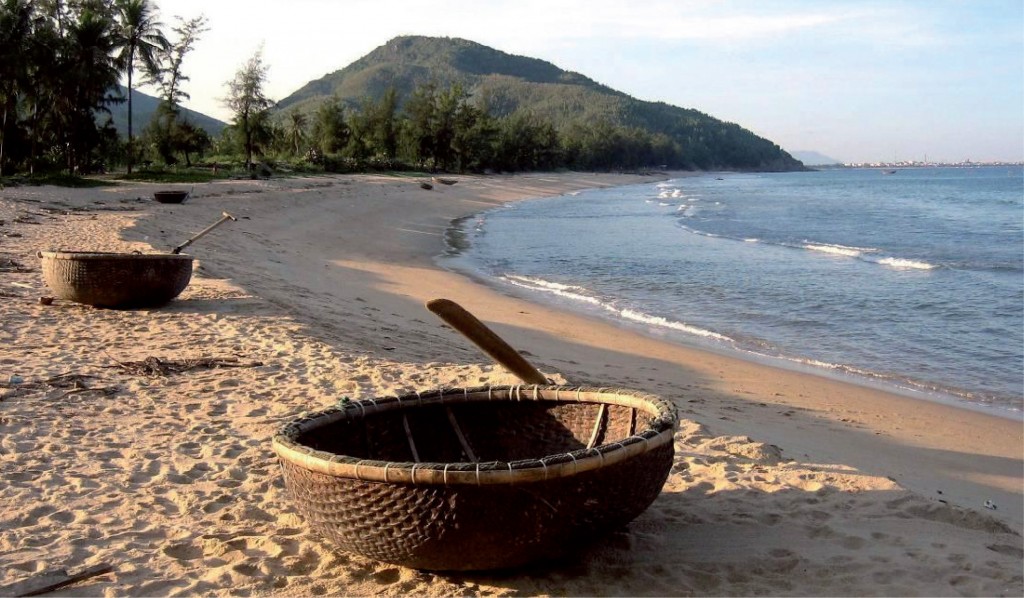Introduction

Our Website https://www.icisequynhon.com/
Context
In a unique adventure in the scientific world, the Association «Rencontres du Vietnam» under the direction of its founder Jean Tran Thanh Van, has developed a close network of international cooperation for scientific research around the entire world for almost 20 years . It organizes high-level Conferences in Vietnam which attract research scientists from developed and emerging nations allowing young Asian students to meet with top scientists all the way to Nobel Laureates.
In order to give even more scope to this North-South cooperation, “Rencontres du Vietnam” is now engaged in the creation of a new international interdisciplinary center in the heart of Vietnam, on an area of 20 hectares (approximately 50 acres) at the edge of the East Sea.
Beyond the scientific and bilateral rapprochement between France and Vietnam, and beyond that of Europe, North America and Southeast Asia, the creation of this Center represents an extraordinary opportunity for a limited number of founding partners to associate themselves with a project of high cultural, scientific, and educational value, which has already received the support of the Vietnamese government.
Objectives
To promote North-South cooperation and develop education through a privileged partnership.
The rapid economic development of emerging nations in the Asian-Pacific zone generally contrasts with their level of scientific and technological development. The increasing awareness of this gap has resulted in the high demand for collaborations, in fundamental research as much as in technological transfers and applications, which today opens up a large range of potential cooperations in Asia.
It is well known that this region of the world is characterized by the youth of its population, and by the constant progress achieved in university education. To give opportunities to students from all these countries to take part in scientific projects with a strong international dimension constitutes an issue and a challenge of first rate importance for the countries and institutions involved as much as for the individuals concerned.
To help the emerging nations to develop their potential fully, one must consider the scientific instruction of their youth; and in this aspect the developed nations can play a major role. Their actions will serve to define the adaptation of new technologies to different economic, social, and environmental contexts, and this effort will open up new industrial and commercial opportunities.
It is in this spirit – which involves both cooperation and education – that the International Center of Interdisciplinary Science Education (ICISE) is being created: young research scientists and engineers specializing in different fields, will be able to exchange ideas and experiences, in an atmosphere propitious to the development of their knowledge and the enrichment of their personalities.
Why Vietnam ?
Having become a major player in the development of the Asian-Pacific region, Vietnam is now ready to become the ideal partner and location for the projected ICISE. The nation has strong ties with France and North America as well as with other countries in the region. Besides it can boast a large number of high quality and high level students open to new ideas and technological innovation.
The “Rencontres du Vietnam” Association, and its founder Jean Tran Thanh Van, have developed local and governmental contacts whose support is essential for the organization of this Project. For years the Association has organized regular conferences, workshops and research encounters across Vietnam.
Besides, the Vietnamese government has given its total support to those efforts; and on various occasions, the President of Vietnam has received delegations of visiting scientists at the Presidential Palace in Hanoi for a discussion on new discoveries and future developments in science.
The International Center : an ambitious project in a friendly environment
The ICISE will be constructed at Quy Nhon, a small town situated on the east coast of Vietnam, one hour north by air from Ho-Chi-Minh City (Saigon). It is an exceptional location near the sea, on an area of 20 hectares (50 acres), which has been offered by the provincial authorities to the “Rencontres du Vietnam” Association.
In its initial stage, the Center will consist of a Conference Building, with Auditoriums, seminar rooms, and offices for study and research. It will welcome national and international Conferences, specialized professional colloquia, as well as selected Thematic Schools, in particular for doctoral students.
In future stages, the Center should be complemented by several other elements :
– A planetarium will be constructed on high ground, and shall welcome groups of school children and university students, to inspire their interest in the marvelous enigmas of the Universe. An Exhibition Room and a Library with «hands-on» demonstrations and apparatus (based on the methods of the “Main-à-la-Pâte” and “Les petits débrouillards” projects in France) will complete this structure to give the general public a taste for learning throught research and the pleasure it gives.
– An Engineering School, providing Master-level professional instruction, will be set up, in collaboration with top international universities.
– A Hotel resort of international standard will be constructed next to ICISE along its maritime façade principally to welcome the Conference participants. While giving priority to the activities of the Center,according to the terms of their joint partnership, the resort will benefit from the rapid development of tourism in the region which will enhance the notoriety of the Center with a larger public.
The architectural office selected for the creation of ICISE is Studio Milou Architecture founded by Jean-Francois MILOU in 1995. Studio Milou Architecture has recently won the world wide competition to design the National Museum of Art in Singapore. Studio Milou Architecture with branches in Paris and Singapore is known for its expertise in designing architectures with a cultural or educational programme.
Le contexte du projet
Aventure exceptionnelle dans le monde scientifique, l’Association Rencontres du Vietnam, sous l’impulsion de son fondateur Jean Tran Thanh Van, a développé depuis près de 20 ans un réseau d’étroite coopération internationale entre chercheurs du monde entier grâce à l’organisation, au Vietnam, de conférences de haut niveau réunissant scientifiques des pays développés aussi bien qu’émergents, jeunes étudiants asiatiques et lauréats du prix Nobel.
Afin de renforcer cette étroite coopération nord-sud et de lui donner une dimension nouvelle, le présent projet prévoit la création d’un centre international pluridisciplinaire, idéalement situé en plein centre du Vietnam, sur un terrain arboré de 20 hectares baigné par la mer de l’Est.
Au-delà du simple rapprochement scientifique entre la France et le Vietnam, entre l’Europe et l’Asie du sud-est, la création de ce centre représente une extraordinaire opportunité pour un nombre limité de partenaires et mécènes, en leur offrant la possibilité d’être associés au développement d’un projet à haute valeur culturelle, scientifique et éducative, qui a déjà reçu le soutien du gouvernement vietnamien. Motivation générale : éducation scientifique, échanges puis transfert de connaissance, coopération internationale Nord-Sud (concernant tout le Sud-est asiatique), et Est-Ouest.
Les objectifs du projet
Promouvoir la coopération nord-sud et développer l’éducation par un partenariat privilégié. Le rapide développement économique des pays émergents de la zone Asie-Pacifique contraste généralement avec leur niveau de développement scientifique et technologique. Il en résulte une forte demande de collaborations, tant en matière de recherche fondamentale que de transferts et d’applications, ce qui ouvre en Asie un large éventail d’opportunités de coopération.
Par ailleurs il est reconnu que cette région du monde se caractérise par la jeunesse de sa population et par les constants progrès réalisés en matière de formation universitaire. Permettre aux étudiants de tous ces pays de s’associer à des projets scientifiques d’envergure internationale représente un enjeu d’importance capitale, tant pour les pays et institutions impliqués que pour les individus concernés.
Aider les pays émergents à développer pleinement leur potentiel en s’appuyant sur leur formidable vivier humain doit passer par des initiatives de formation – en particulier scientifique – à destination des jeunes générations, initiatives pour lesquelles les pays développés ont un rôle de premier plan à jouer.
C’est dans cet esprit que sera créé et développé l’International Centre for Interdisciplinary Scientific Encounters (ICISE), où jeunes scientifiques, chercheurs et ingénieurs spécialistes de différents domaines pourront échanger leurs idées et leurs expériences, dans une atmosphère propice au développement du savoir et à l’épanouissement de la personnalité humaine.
Pourquoi le Vietnam ?
Acteur majeur du développement de la zone Asie-Pacifique, le Vietnam constitue un partenaire idéal dans la mise en place du projet ICISE. D’abord, c’est un pays proche de la France par son histoire, et les liens unissant les deux pays restent aujourd’hui forts et étroits. De plus, il possède un important vivier d’étudiants de très bon niveau.
Par ailleurs, l’Association Rencontres du Vietnam et son fondateur Jean Tran Thanh Van peuvent s’appuyer sur un puissant réseau local de contacts et de partenaires, tant au niveau gouvernemental que provincial, dont le soutien est essentiel pour la réalisation du projet. Depuis des années, elle organise des conférences, rencontres et écoles au Vietnam.
Enfin, le gouvernement vietnamien apporte déjà son plein soutien aux conférences organisées à Hanoi, et reçoit régulièrement des délégations de chercheurs pour échanger sur les nouvelles découvertes et les prochaines perspectives scientifiques.
Le Centre International, un projet ambitieux respectueux de l’environnement
L’ICISE construit à Qui Nhon, ville située sur la côte à 1 heure d’avion d’Ho-Chi-Minh ville, bénéficiera d’une situation exceptionnelle en bord de mer, sur un terrain de 20 hectares qui a été offert par les autorités provinciales à l’association Rencontres du Vietnam. Dans une première phase, le Centre comportera un bâtiment de conférences avec des auditoriums et des salles de
séminaires . Il accueillera des conférences nationales et internationales, des colloques professionnels spécialisés, ainsi que des écoles thématiques, notamment pour les doctorants.
Dans une phase ultérieure, le Centre devrait s’enrichir de plusieurs éléments supplémentaires :
– un planétarium construit sur les hauteurs du site afin d’accueillir des groupes de jeunes écoliers et lycéens ainsi que des étudiants pour les sensibiliser aux énigmes merveilleuses de l’Univers. Une salle d’exposition et une bibliothèque ainsi qu’une animation scientifique avec la méthode de « La main à la pâte » ou avec l’association française « Les petits débrouillards » compléteraient cet ensemble destiné à la joie de la recherche au grand public.
Une école d’ingénieurs, des formations du niveau Master professionnel spécialisé, réalisées en collaboration avec des universités françaises et étrangères, pourront également intégrer le site.
– A proximité du Centre un complexe hôtelier de standard international, confié à un organisme privé, sera construit sur la façade maritime du terrain. Tout en privilégiant l’accueil des invités du Centre, selon une convention de partenariat, cet hôtel bénéficiera également du fort développement touristique de la région, favorisant de surcroît le développement de la notoriété du Centre scientifique auprès d’un plus large public.
Le cabinet d’architecture retenu pour la création de l’ICISE est le Studio Milou Architecture, fondé par l’architecte français Jean François Milou en 1995. Etabli à Paris et Singapour, le Studio Milou Architecture a été désigné lauréat du concours international pour la réalisation du Musée d’Art National de Singapour : il possède une expertise reconnue dans l’architecture des bâtiments à vocation culturelle ou éducative.



